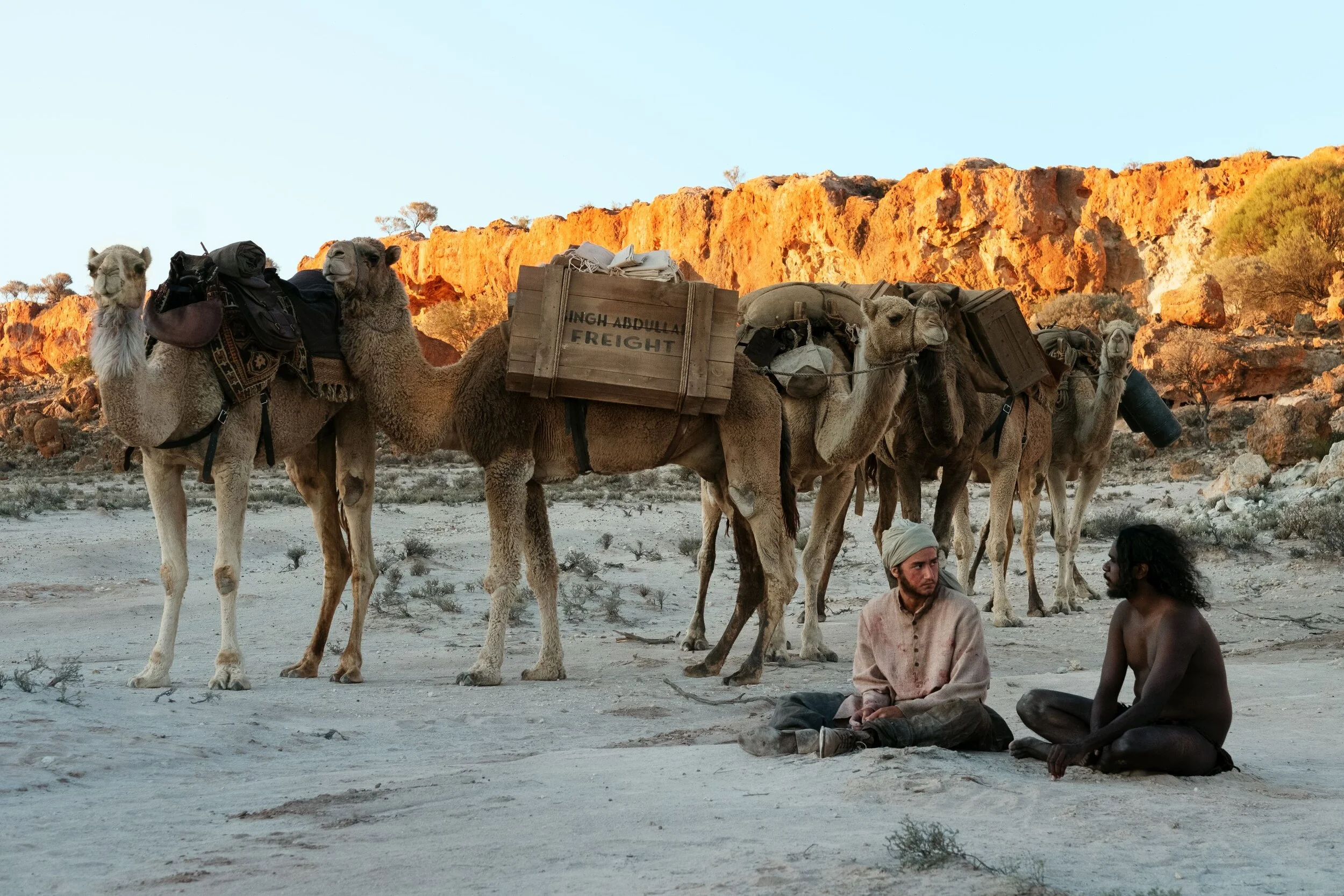Following its success at the 2020 Venice Film Festival, acclaimed Australian drama The Furnace premiered on 30 November, shining a light on the ‘Afghan’ cameleers during the 1800s gold rushes at its premiere on 30 November.
The Furnace
Egyptian actor Ahmed Malek gives a stirring performance as young Afghan Hanif, a camel driver or cameleer, who experiences the harsh conditions of life and toil in the Australian outback during the 1800s, as men and women from around the world flocked to the Western Australian goldfields seeking their fortune.
Along with his Sikh friend and fellow cameleer Jundah (played by Kaushik Das), they form a kindred bond with Woorak (Baykali Ganambarr), a skilled Aboriginal hunter, who provides knowledge of the land.
The film follows Hanif’s unlikely quest to find an illegal furnace in which to melt two stolen bars of marked Crown gold, thanks to his chance encounter with the sole survivor of a group massacre – a ‘prospector’ named Mal (David Wenham). Together, they must put their differences aside to journey through the wilderness whilst dodging the Gold Squad officers of law enforcement.
Although fictional, the film tells a previously untold story of the cameleers from multiple countries and further sheds light on and preserves the Aboriginal language Badimaya — now considered a sleeper language — which is spoken by several actors.
Writer and Director Roderick MacKay praised the Australian gold industry for its support and endorsement of turning the previously untold narrative into a feature film.
"The gold industry was among the first to see the historic importance of this story, not just for Western Australia, but the whole country. I am profoundly grateful for the sector's support, without which the film simply would not exist. This is particularly true of Northern Star Resources executive chairman, Bill Beament, who personally championed the film among his fellow gold sector colleagues,” he said.
“Much like gold prospecting, filmmaking can be very speculative, so I think there's an adventurous spirit that is shared between the two sectors," Mr MacKay continued.
All the while masterfully blending cultural perspectives, the film presents a unique and visceral insight into the history of WA’s goldfields, with much of the film shot in Mount Magnet with the support of Ramelius Resources.
Cameleers and gold
595km from Perth, the WA goldfields were a truly isolated place in the 19th century. Prior to the trainline being constructed in 1894, early travellers had to make the journey either by camel-train, horse, or walking.
Camels were first used for exploring inland Australia in Burke and Wills' expedition in 1860. In 1892, they were brought to the WA goldfields from South Australia, and by 1893 there were 380 camels in WA, with more on the way from India.
Camels surpassed horses as the superior animal in the outback, for their ability to survive for days without water and could feed on local vegetation. They were also able to get into previously inaccessible parts of the country, and in long trains the animals could carry building and railway materials, food, furniture, mail and medicine to the shanty towns that quickly sprang up across the outback as more discoveries of gold made global headlines.
In turn, the cameleers themselves were better suited physically than Europeans to the harsh conditions of inland Australia.
Thousands of camel drivers from Afghanistan (including Durranis, Afridis and Baluchis from the Afghan province of Baluchistan) and the provinces of modern-day Pakistan and India played a significant role in opening the great expanses of central Australia. Unfortunately, they were subject to racist attitudes, with white settlers and Europeans collectively referring to the men as ‘Ghans’, even though they practised different religions, brought different skills, and spoke a wide variety of languages.
They interacted well with the Indigenous population and some married European or Aboriginal women. Today, there are many Australian descendants proudly carrying their Islamic or Sikh surnames.
UNEARTH MORE GOLDEN STORIES ON THE FREE HEART OF GOLD AUSTRALIA APP, AVAILABLE FROM THE APP STORE (iOS) AND GOOGLE PLAY (ANDROID).
The Furnace premieres as part of Lotterywest Films Perth Festival from 30 November – 6 December before being available at 110 cinemas around Australia from 10 December 2020.

